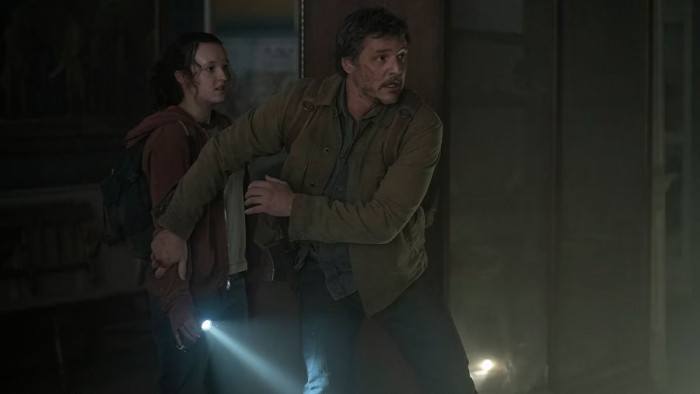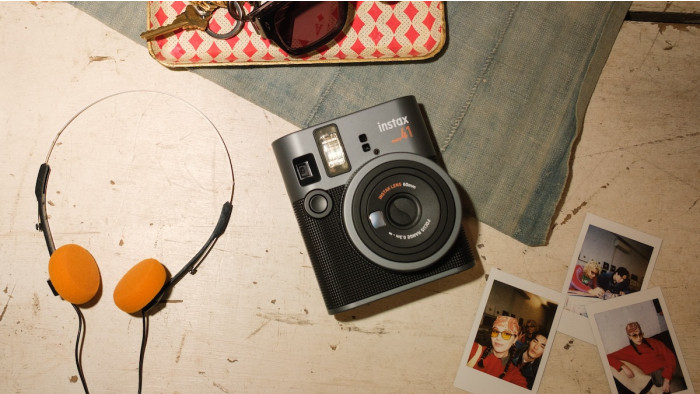Riddled with censorship bullets, bleeding heavily from its projected sales forecasts, 2015 saw the blood-soaked Hotline Miami 2 become the latest title to fall foul of Australia's stern gaming censors.
The response of game designer Jonatan Söderström? An open invitation for Australian gamers to pirate his top-down shooter, downloading it illegally where they can.
But before the age of the internet, other generations weren't able to flout the rules so easily. Inspired by the fate of Hotline Miami 2, we put together a brief history of video games that have caused controversy over the years - from understandable bans to utterly bizarre blacklistings.
Now play nice.

Death Race
Banned in: Various arcade halls across the US
Why: "Gross" violence
Long before Grand Theft Auto was upsetting parents the world over, a pixelated arcade racer by the name of Death Race gave safety authorities their first brush with video game violence. Some 500 steering-wheeled cabinets hit arcades in 1976, offering gamers a chance to run down stick figure "gremlins" who flee the oncoming vehicle. Complaints soon arose about the upsetting "screaming" noises produced upon successfully running down a gremlin, which sparked further concern from national media. To avoid the bad publicity, some arcade halls decided to pull the game. While it was never officially banned, it was one of the first video games to spark the now-familiar "do video games cause violence" discussion.

Custer's Revenge
Banned in: Oklahoma City, Oklahoma, USA
Why: Adult humour, racism, "rape"
We don't know how this one made it onto shelves. Released for the Atari 2600 in 1982 by developer Mystique, Custer's Revenge was open about its adult content: the game saw a naked, erect General Custer dodge income arrows in order to reach a similarly nude Native American woman tied to a pole, whereupon he would... well, you can probably figure it out from the cover art. Women's rights groups and activists criticised the game for depicting rape, but the added media attention helped sell some 80,000 copies of the title - making it Mystique's most successful adult game. Only Oklahoma City saw fit to ban the game, with Suffolk County in New York threatened with a lawsuit for looking to halt sales of the game.

Night Trap
Banned in: USA (from 1993), UK (until 1995)
Why: Sexual violence
Night Trap is that age old story of a group of young girls who get together for a slumber party, only to find that their hosts are vampires. Classic stuff, no? While the players' objective in the interactive movie/game was to trap the vampires and prevent the attacks from happening, the depictions of violence against the girls were so "real" due to the game's use of full-motion video, that the game sparked huge controversy. Two huge US retailers, Toys "R" Us and Kay-Bee Toy, pulled the game from shelves, while scenes in the game were mentioned alongside the gore of Mortal Kombat and Doom during a discussion of video game violence at a US Congressional hearing in 1993, which in turn led to the formation of the Entertainment Software Rating Board. The game was banned in the UK until a Director's Cut re-release in 1995 made it past censors.

Phantasmagoria
Banned in: Australia, while some US outlets refused to stock it
Why: Graphic and sexual violence
Another live-action controversy, Phantasmagoria was lauded by some as a grizzly triumph of point-and-click adventuring. Set in a grand mansion haunted by a grizzly demon, the game was heavy on acting and puzzles - but the violence, gore and questionable inclusion of a rape scene saw the game banned in Australia, while several large US retailers decided against stocking it. In those regions where the game wasn't banned, it went on to become one of the best-selling titles of the year.

Grand Theft Auto
Banned in: Brazil, United Arab Emirates, Thailand
Why: Violence
Despite containing far less unwholesome material than its sequels, the top-down antics of the first Grand Theft Auto were still enough to see the game banned in some corners of the world. Brazil initially blacklisted the title due to its high impact violence, as did the United Arab Emirates. Following a GTA-style murder of a taxi-driver by an 18-year-old, all of the Grand Theft Auto titles are now banned in Thailand; police have even been granted powers to arrest any shop owner found stocking the game.

Carmageddon
Banned in: Brazil, Germany, UK, to name a few
Why: Graphic violence
Cars plus armageddon equals one heck of a messy video game. Carmageddon wasn't quiet about its violence - the game was a point-to-point racer with added incentive dished out for killing pedestrians and wrecking other cars en route. In order to generate some publicity for its high levels of carnage, publisher SCi submitted the title to the British Board of Film Classification (BBFC) in the hopes of gaining an 18 certificate - an odd move given that the game contained no film footage. It didn't work quite as intended, with the BBFC refusing to certify the game unless all the gore and blood was removed. A censored version of the game was eventually released in the UK and Germany, in which pedestrians were replaced by robots and zombies, spilling oil and green blood rather than gore.

Half-Life
Banned in: Singapore
Why: Excessive violence
Released in 1998 to universal acclaim, Valve's sci-fi shooter wasn't overtly gratuitous. Sure, the Head Crabs did nasty things to the skulls of unwitting scientists, but there are much more graphic depictions of violence in our list. Oddly, two years after its launch, Singaporean officials moved to ban the sale of the game due to its (and that of its expansion, Counter Strike) depictions of violence. Gamers protested, petitions were signed, and - despite reports of officials raiding LAN shops running the game - the government relented and lifted the ban.

Manhunt 2
Banned in: UK, initially, with an "Adult Only" rating in the US
Why: High-impact violence
Anyone who's witnessed a 'Level 3' stealth kill on this survival horror title can probably tell you why the UK's BBFC decided against giving it an 18 rating - thus effectively "banning" it. Gory doesn't quite do the blood-soaked close-up kills justice. An edited version that reduced the violence was eventually passed in the US, but the UK's BBFC refused to give the game a rating, despite the Video Appeals Committee overturning an original ruling and bouncing the argument through the Royal Courts of Justice.

Command & Conquer: Generals
Banned in: China
Why: Culturally insensitive, except...
Were a game to depict a nation as a malicious, evil empire, intent on world domination and genocide, you'd probably understand as to why said nation might look to censor or ban the title. But that's not the case with Command & Conquer: Generals and its depiction of China - far from it. China was actually an ally in the game, portrayed as one of the world's major super powers. While campaign missions saw various Chinese landmarks attacked by enemy forces, it wasn't because China was a "bad guy". Still, it was felt that the game distorted the history, sovereignty and territorial integrity of China, and that was enough to get it banned.

Postal 2
Banned in: New Zealand, Brazil
Why: Just about everything
The offences a gamer can rack up in Postal 2 reads like a list of "What parents hope their kids won't encounter in a video game". Homophobia, animal cruelty, urination, racism, ethnic stereotyping, murder, sexism... while the game developers argued that the number of offences you enact in a game lay at the hands of the gamer, New Zealand's office for film and literature wasn't so understanding. It outlawed the game, making distribution or even ownership of the game punishable with a hefty fine.

Football Manager 2005
Banned in: China
Why: Listing Tibet, Hong Kong and Taiwan as independent countries
Despite developer Sports Interactive never attempting to translate their epic spreadsheet manager game into Mandarin, China didn't take too kindly to the 2005 title listing Tibet, Hong Kong and Taiwan as separate countries. China found that the content of the game was "harmful to China's sovereignty and territorial integrity", and put a ban on the game's formal release. Sports Interactive responded by modifying the game with a Chinese version, altering the offending country list.

Marc Eckō's Getting Up: Contents Under Pressure
Banned in: Australia
Why: Glorification of street art
Australia's Federal Classification Review Board (FCRB) has taken a hard line on many games over the years - but one of the more unusual controversies surrounded Getting Up. The game wasn't overly violent or crude, but saw rival gangs battle for dominance with graffiti, not unlike Jet Set Radio. Fearing the game would encourage youths to go out and start tagging their streets, the FCRB refused to give it a rating, thus effectively banning its sale.

Bully
Banned in: Brazil
Why: Potential psychological harm to teens and young adults
Rockstar's school-based title Bully managed to ruffle a few feathers around the world on its launch in 2006: in the UK, Labour MP Keith Vaz wanted the game banned or given an 18 certificate rather than the 15 it eventually received, while Currys and PC World refused to stock the title for being at odds with their "family-friendly image". Brazil went a step further, with judge Flávio Mendes Rabelo from Rio Grande do Sul stating that the depiction of violence and corruption in a school would be harmful for any child who played it, banning the sale of the title in the nation.

Mass Effect
Banned in: Singapore (at launch)
Why: Interspecies lesbianism
When Mass Effect launched in 2007, it was hailed around the world as one of the finest RPGs of its generation, picking up awards and honours for fun. Everywhere, that is, except Singapore. The issue? A love scene in which a female human could caress an apparently female alien (although the species only had one gender). After word got out that the nation's Media Development Authority was set to ban the title, there was a general grumble from fans and distributors, resulting in the government body reversing its decision and issuing the game with an M18 rating.

Any violent video game
Banned in: Venezuela
Why: Poisoning the nation
In March 2010, Venezuela passed a bill that effectively banned all violent video games and titles that involved characters using weapons. Anyone found making, distribution, selling, renting, exhibiting or using violent games could be fined or even put in prison for five years. Still, at least you can still play Solitaire, right? Just maybe not Minesweeper.










